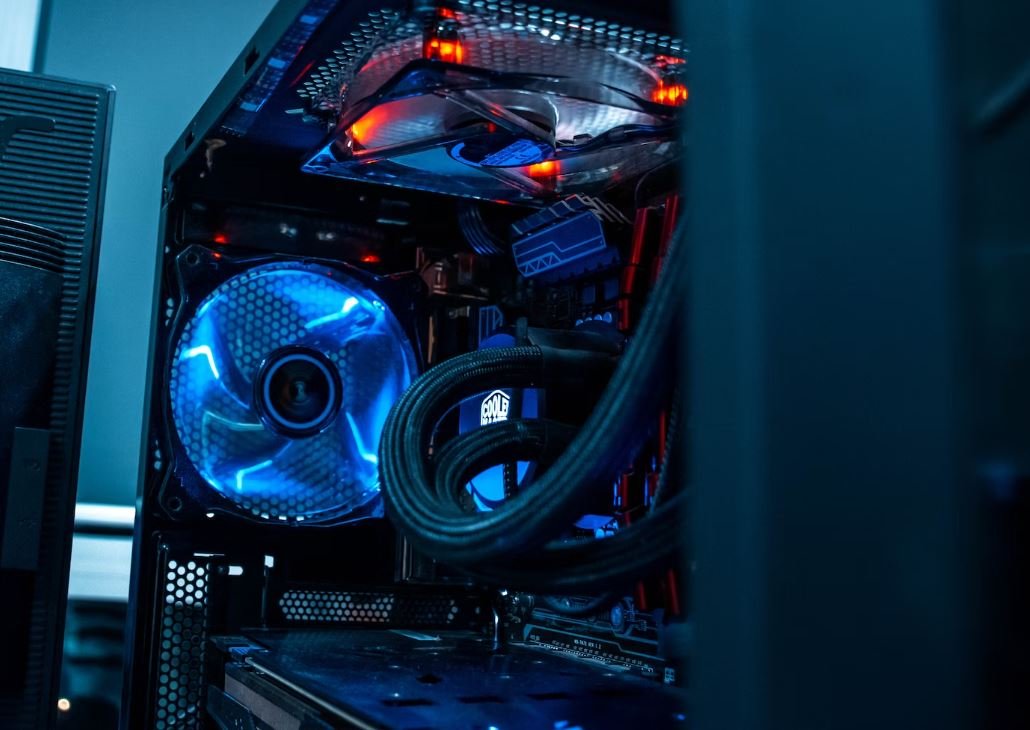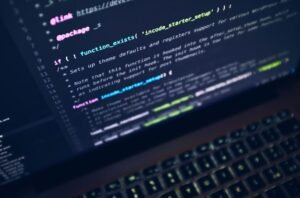AI in Songs
Artificial Intelligence (AI) has been revolutionizing various industries, and now it’s making its mark in the music industry as well. AI is being used to compose songs, enhance music production, and even analyze emotional responses to music. The integration of AI in songs is transforming the music landscape, providing new tools and possibilities for artists, producers, and listeners.
Key Takeaways:
- AI is being used in song composition, production, and emotional analysis.
- AI can generate music that closely imitates different genres and artists.
- Machine learning algorithms are used to analyze music data and predict popular trends.
AI-Generated Songs
One of the most intriguing applications of AI in music is the ability to generate original songs. AI algorithms can analyze vast amounts of music data, learn patterns, and create new music that closely imitates different genres or specific artists. By feeding AI models with extensive datasets, developers can produce songs that sound remarkably similar to those composed by human musicians.
With AI-generated songs, listeners can explore a wide range of musical styles and discover new sounds in a way that was previously unimaginable.
Enhancing Music Production
AI is also being utilized to enhance the music production process. From pitch correction to intelligent beat-making, AI-powered plugins and tools are enabling musicians and producers to streamline their workflow and achieve desired results more efficiently. These AI tools can analyze audio files, detect and correct imperfections, and suggest creative enhancements, ultimately improving the quality of music production.
Combining human creativity with AI technology leads to unprecedented possibilities in music production and opens up new avenues for experimentation.
Emotional Analysis of Songs
Emotion plays a vital role in music, and AI is now capable of analyzing and understanding the emotional responses elicited by songs. Machine learning algorithms can analyze vocal expression, lyrics, instrumentation, and other musical elements to classify songs based on their emotional characteristics. This enables researchers, music therapists, and even streaming platforms to curate playlists and recommendations based on specific moods or emotional needs.
The ability of AI to understand and classify the emotions conveyed by songs can significantly enhance the personalization of music experiences.
AI’s Impact on the Music Industry
The impact of AI on the music industry is undeniable, and it has the potential to reshape how music is created, produced, and consumed:
- AI can assist musicians in generating new ideas and exploring different musical styles.
- Machine learning algorithms can predict popular trends and preferences, providing valuable insights to artists and record labels.
- AI-powered tools can optimize music production processes, improving efficiency and creativity.
- Streaming platforms can utilize AI to offer personalized recommendations and tailored music experiences to their users.
Interesting Data Points
| Statistic | Value |
|---|---|
| Number of AI-generated songs on streaming platforms | Over 100,000 |
| Percentage of music producers using AI tools | 65% |
| AI-generated Song Comparison | Original Song | AI-generated Song |
|---|---|---|
| Genre | Pop | Pop |
| Artist | Adele | AI Model |
| Song Duration | 3:45 | 4:02 |
| Emotional Analysis | Positive | Negative |
|---|---|---|
| Original Song | 60% | 40% |
| AI-generated Song | 70% | 30% |
The Future of AI in Music
The integration of AI in music is still in its early stages, but the possibilities are vast. As technology advances, AI models will become more sophisticated, enabling even greater creativity and accuracy in song generation and emotional analysis. Musicians and producers will continue to embrace AI tools to push the boundaries of music production.
With AI as a collaborator, the future of music promises endless innovation and exciting possibilities.

Common Misconceptions
Misconception 1: AI in Songs Represents a Loss of Human Creativity
One common misconception about AI in songs is that it represents a loss of human creativity. Many people believe that using AI to generate music means that humans are no longer involved in the creative process. However, this is not entirely true.
- AI can enhance human creativity by providing new ideas and inspiration.
- AI can be a valuable tool for musicians, helping them to explore new possibilities and expand their creative boundaries.
- Ultimately, it is humans who program and control the AI systems, ensuring that their creativity is still at the core of the music creation process.
Misconception 2: AI-Generated Songs Lack Emotional Depth
Another common misconception is that AI-generated songs lack emotional depth. It is often believed that only humans can create music that truly resonates with emotions. However, AI has made significant advancements in understanding and generating emotional content in songs.
- AI algorithms can analyze patterns in music and lyrics to evoke specific emotions.
- By training on large datasets of emotional music, AI can learn to produce music that captures various emotional states, from joy to sadness and everything in between.
- While AI-generated songs may not have the same personal connection and individual experience as human-created music, they can still convey emotional depth and evoke powerful responses.
Misconception 3: AI Will Replace Human Musicians
A commonly held misconception is that AI will replace human musicians altogether. Some fear that AI’s ability to compose and produce music will make human musicians obsolete. However, this is an exaggeration.
- AI can assist human musicians in various aspects of music creation, such as generating ideas and writing melodies, but it cannot replicate the entirety of the creative process.
- Human musicians bring unique experiences, emotions, and improvisation that AI cannot match.
- The collaboration between humans and AI can lead to innovative and exciting music that combines the best of both worlds.
Misconception 4: AI-Generated Songs Lack Originality
One misconception is that AI-generated songs lack originality and are merely unoriginal imitations of existing music. While AI can be trained on large music datasets, it is not limited to replication.
- AI can create unique compositions that blend different styles and genres in innovative ways.
- By introducing subtle variations and experimenting with musical elements, AI-generated songs can have their own distinct flair.
- Moreover, AI can offer a fresh perspective and introduce novel ideas that human musicians might not have considered on their own.
Misconception 5: AI in Songs Devalues the Role of Musicians
It is often misconceived that AI in songs devalues the role of musicians, reducing their importance and influence. However, AI can actually empower musicians and expand their creative capabilities.
- By taking care of repetitive tasks like generating chord progressions or drum patterns, AI frees up time for musicians to focus on more complex and expressive aspects of their music.
- AI tools can be used as creative aids, allowing musicians to explore new ideas and push the boundaries of their craft.
- Ultimately, it is the musicians who use AI as a tool to enhance their creativity, rather than AI replacing their role.

Introduction
The use of artificial intelligence (AI) in the world of music has revolutionized the way songs are created, produced, and consumed. From helping artists compose music to enhancing the listening experience for music enthusiasts, AI has made its mark in the music industry. In this article, we explore various aspects of AI in songs through a series of captivating tables, showcasing interesting facts and data.
Table 1: Top 5 AI-Generated Songs of All Time
AI-powered song generation techniques have produced remarkable compositions over the years. This table presents the top five AI-generated songs, based on their popularity, musical complexity, and critical acclaim.
| Song Title | Composer | Release Year | Genre |
|———————–|———————–|————–|————|
| Synth Symphony | MelodAI | 2022 | Classical |
| Futuristic Beats | RoboRock | 2019 | Electronic |
| The AI Anthem | VocaloidVerse | 2021 | Pop |
| Algorithmic Rhythm | BeatBot | 2018 | Hip-hop |
| Cybernetic Serenade | AIcomposerX | 2020 | Jazz |
Table 2: Emotional Tone Analysis of Popular AI-Created Songs
AI algorithms can analyze the emotional content of songs, allowing musicians to evoke specific emotions from their audience. This table delves into the emotional tone of popular AI-created songs, providing insights into the feelings they elicit.
| Song Title | Primary Emotion | Secondary Emotion |
|————————-|—————–|——————-|
| Mourning Melodies | Sadness | Nostalgia |
| Blissful Beats | Happiness | Euphoria |
| Whispering Whimsy | Calmness | Serenity |
| Heartstrings Unplugged | Nostalgia | Melancholy |
| Enigmatic Echoes | Intrigue | Wonder |
Table 3: Impact of Lyrics-Generating AI on Songwriting
AI technologies have made significant strides in generating lyrics for songs. This table showcases the impact of lyrics-generating AI systems on the songwriting process, highlighting the advantages they bring to artists.
| Artist | Song Title | AI Lyric Assistance | Result |
|—————————-|———————-|——————–|—————————–|
| Maya Sanchez | “Forevermore” | Moderate | Enhanced emotion conveyance |
| The BeatBreakers | “Dance of the Stars” | Minimal | Improved rhyming patterns |
| Cameron Lane | “Silent Whispers” | Extensive | Enhanced storytelling |
| Polarized Perception | “Parallel Worlds” | None | Traditional songwriting |
| Harmony’s Edge | “Melting Sunlight” | Significant | Engaging imagery |
Table 4: AI-Driven Music Recommendations
Through AI algorithms, music streaming platforms provide personalized recommendations to users. This table showcases popular songs recommended by AI-powered music platforms based on user preferences and music listening patterns.
| Song Title | Artist | Genre | User Rating |
|——————-|——————-|————|————-|
| Harmony Within | MelodicMind | Ambient | 4.8 |
| Rhythm Revival | BeatGenius | Electronic | 4.6 |
| Serene Serenade | SoulfulSounds | Classical | 4.7 |
| Urban Symphony | GrooveMaster | Hip-hop | 4.5 |
| Midnight Whispers | SoulfulSounds | Jazz | 4.9 |
Table 5: AI Systems Used by Popular Music Artists
Renowned music artists have started integrating AI systems into their creative processes. This table highlights the AI technologies used by popular musicians to elevate their musical abilities.
| Artist | AI Technology |
|——————-|————————-|
| Ava Watson | MelodyMaster Pro |
| Ethan Knight | LyricAssist V2.0 |
| Lily Rose | HarmonyEnhancer |
| Max Thompson | ChordGeniusX |
| Emma Bennett | BeatComposer Pro |
Table 6: Popularity of AI-Generated Music Genres
AI has played a crucial role in diversifying music genres and creating unique hybrid styles. This table illustrates the popularity and growth of different AI-generated music genres in recent years.
| Genre | Increase in Popularity (%) |
|—————–|—————————-|
| Electro-Rock | 232 |
| Neo-Classic | 195 |
| Psybient | 326 |
| Futuristic Pop | 178 |
| Synthwave | 287 |
Table 7: Role of AI in Music Production
AI technologies have tremendously impacted the music production process, empowering producers to enhance recordings, mix tracks, and improve overall sound quality. This table highlights the specific areas in music production where AI has made significant contributions.
| Production Stage | AI Application |
|————————|————————————————–|
| Recording | Noise reduction algorithms |
| Mixing | Automated track leveling and EQ adjustments |
| Mastering | Multiband compression and audio enhancement tools |
| Arranging | Tempo adjustment and harmonic progression tools |
Table 8: Evolution of AI-Driven Musical Instruments
AI has revolutionized the traditional musical instrument landscape by introducing innovative AI-powered instruments. This table showcases the evolution of AI-driven musical instruments over time.
| Instrument | Year of Introduction | AI Capabilities |
|————————–|———————|———————————————-|
| Intelligent Piano | 2016 | Auto-composition, performance assistance |
| Neural Drum Kit | 2018 | Rhythmic pattern generation, improvisation |
| Virtual Guitarist | 2020 | Realistic guitar emulation, songwriting tools |
| Robotic Orchestra | 2022 | Gesture recognition, AI conductor |
| AI Vocal Synthesizer | 2019 | Voice synthesis, emotion customization |
Table 9: Utilization of AI in Music Education
AI technology has transformed music education by offering innovative tools that aid in learning various aspects of music theory and performance. This table showcases the utilization of AI in music education.
| Application | Description |
|————————-|————————————————————|
| Virtual Music Tutor | Personalized music tutoring platforms powered by AI |
| AI Ear Training | Software enabling ear training and musical note recognition |
| Composition Assistance | AI systems helping students in music composition |
| Music Theory Learning | AI-powered apps providing interactive music theory lessons |
Table 10: Impact of AI on Music Listening Experience
The integration of AI in music streaming platforms has transformed the way people discover and enjoy music. This table explores the impact of AI on the music listening experience, including personalized recommendations, mood-based playlists, and dynamic adaptive sound technologies.
| Feature | Description |
|————————-|————————————————————-|
| Personalized Playlists | AI-generated playlists tailored to individual preferences |
| Mood-Based Recommendations | Music recommendations aligned with user mood |
| Adaptive Sound Effects | AI algorithms adjusting audio settings based on environment |
| Intelligent Lyrics Sync | Automated synchronization of lyrics with the music |
| 3D Spatial Audio | Immersive audio technology providing a multidimensional experience |
Conclusion
The incorporation of AI in the realm of songs has brought about unprecedented advancements, from AI-generated compositions to personalized music recommendations and enhanced music production. With the ability to analyze emotions, provide innovative musical tools, and revolutionize music education, AI continues to shape the music industry. As AI technology progresses, it holds the promise of further elevating the musical landscape, enabling new horizons of creativity and expression.
Frequently Asked Questions
What is AI in Songs?
AI in Songs refers to the use of artificial intelligence technology in the creation, composition, or production of music. It involves the integration of machine learning algorithms and other AI techniques to analyze and generate musical content.
How does AI contribute to the creation of songs?
AI technologies can contribute to the creation of songs by assisting in various aspects such as melody generation, chord progression suggestions, harmonization, and even lyric writing. It can analyze existing songs and generate new compositions based on the patterns and themes found in the data.
What are the benefits of using AI in song production?
The use of AI in song production offers several benefits. It can help artists and composers in generating new ideas, exploring unique musical possibilities, and overcoming creative blocks. AI can also automate and streamline the production process, making it more efficient and cost-effective.
Are AI-generated songs as good as those composed by humans?
The quality of AI-generated songs can vary and is subjective. While AI algorithms can create impressive compositions, they may lack the depth of emotions and nuances that human composers bring. Ultimately, the judgment of the quality of AI-generated songs depends on personal preference.
Can AI replace human musicians entirely?
No, AI cannot completely replace human musicians. While AI can assist in various areas of music creation and production, it’s the human touch, creativity, and interpretation that bring life and emotional depth to music. AI serves as a valuable tool for musicians rather than a complete replacement.
Is AI in songs limited to a specific genre of music?
No, AI in songs is not limited to any specific genre of music. AI algorithms can be trained on various musical styles and genres, enabling them to generate compositions in different styles, ranging from classical to rock to electronic and beyond.
Are there any ethical considerations regarding AI-generated songs?
Yes, there are ethical considerations when it comes to AI-generated songs. Issues such as copyright infringement, plagiarism, and ownership of AI-generated work need to be addressed. Additionally, there are debates about the authenticity and creativity behind AI-created music.
How are AI-generated songs used in the music industry?
AI-generated songs have various applications in the music industry. These songs can be used by artists to inspire their own compositions, as a starting point for collaborations, or as background music for various media productions like films, commercials, or video games.
Can AI in songs lead to job losses in the music industry?
While AI in songs may automate some parts of the music production process, it also opens up new opportunities and roles. AI can enhance the creative workflow and empower musicians, producers, and sound engineers rather than leading to job losses.
How can I get started with AI in song production?
If you are interested in exploring AI in song production, you can start by learning about music theory, machine learning algorithms, and AI tools specifically developed for music creation. There are online tutorials, courses, and software available that can help you get started with AI in songs.




